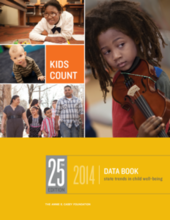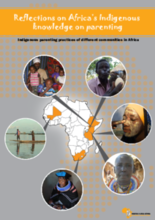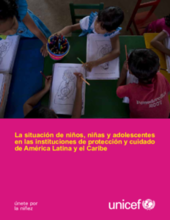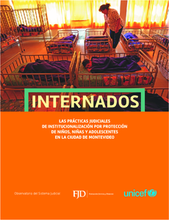This page contains documents and other resources related to children's care in the Americas. Browse resources by region, country, or category.
Displaying 2941 - 2950 of 3191
This qualitative study explored the experiences of adults who had lived in group home care as adolescents and transitioned back into the community at the end of their treatment.
The KidsCount Data Book for 2014 is produced by the Annie E. Casey Foundation. It is the 25th edition of this data book, which measures state trends and demographics in child wellbeing in the United States.
This publication, produced by the Parenting in Africa Network (PAN), highlights the skillful parenting practices of several pastoral communities in Africa.
This article closes a special edition focused on the state of child protection in 16 countries chosen to represent very different cultural contexts, historical backgrounds, and social welfare systems with special attention to out-of-home care placements, principally family foster care and residential care, though several aspects related to adoption were included as well.
This paper provides overview of the US and Canada in-care system, noting certain differences and similarities between the two systems. Estimates of the number of children in care in Canada and data on children in the US foster care systems is also provided.
This article highlights a new family tracing program for children in foster care initiated by New York’s Administration for Children’s Services that borrows from Family Tracing and Reunification techniques used by the International Red Cross and other humanitarian agencies for reconnecting separated children with their relatives.
Este trabajo pretende identificar los principales problemas que enfrentan los países de la región en relación al tema y desarrolla someramente algunos de los estándares de derechos humanos que deben ser observados, con el objetivo de contribuir sustancialmente a la adecuación de los sistemas de protección en lo que refiere a la utilización de la internación de los niños, niñas y adolescentes en las instituciones de protección.
This article shares the story of Hana, a 13 year-old girl who had been adopted from Ethiopia three years previously, died in the care of her adoptive family in Washington state, USA.
la publicación que aquí se presenta pretende ser un aporte para conocer y entender las situaciones que llegan al sistema de justicia, al brindar evidencia que contribuya a seguir ajustando las prácticas judiciales a los estándares de los derechos humanos de la infancia.
This 6-minute video from the Center on the Developing Child at Harvard University explains the importance of human interaction with a caregiver to an infant’s brain development and the dangers of neglect to a child’s cognitive development, particularly the neglect that occurs in institutional settings.





